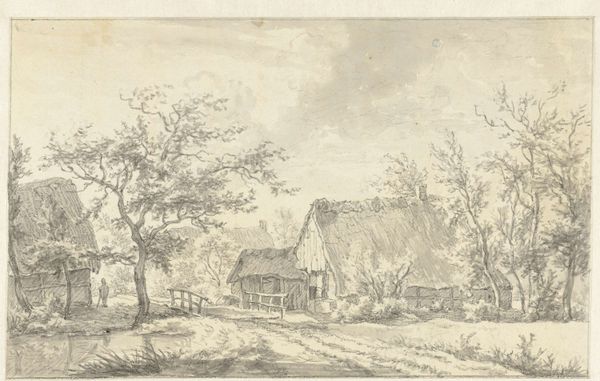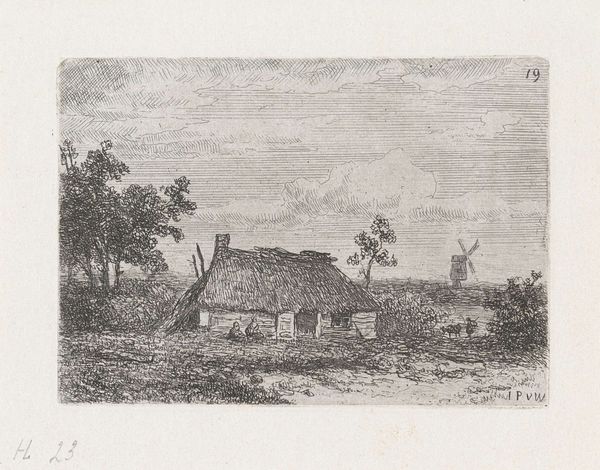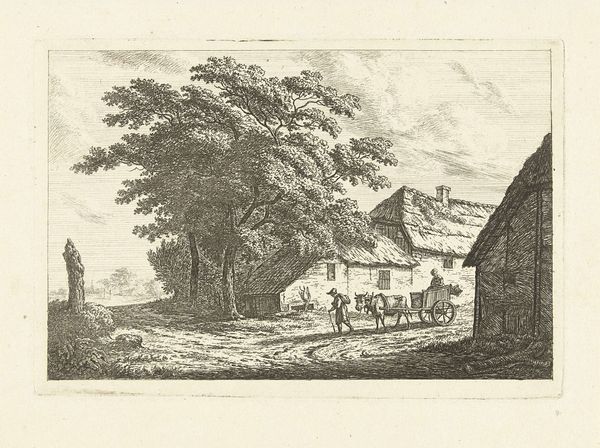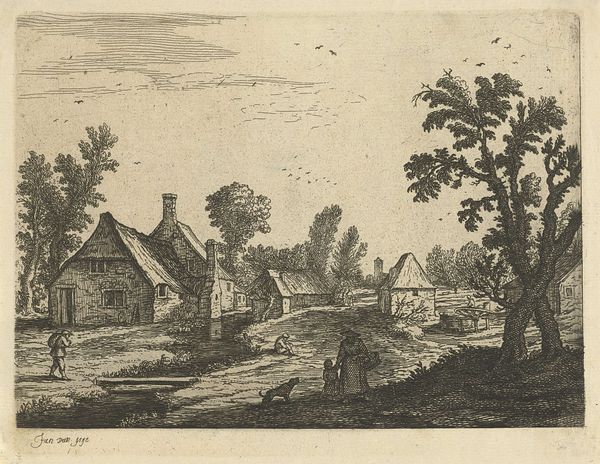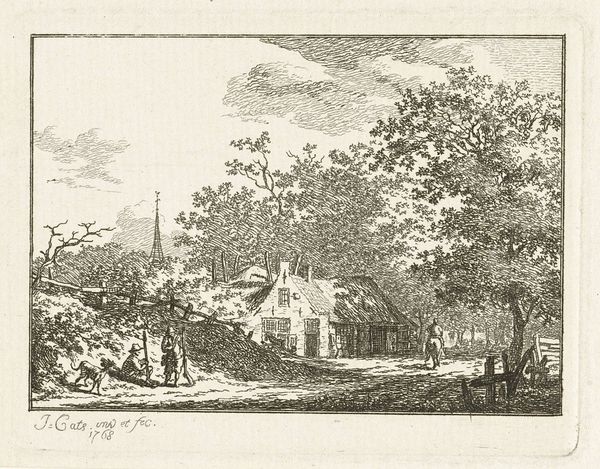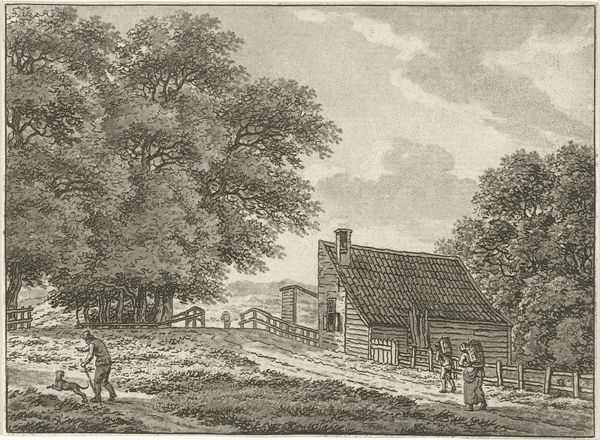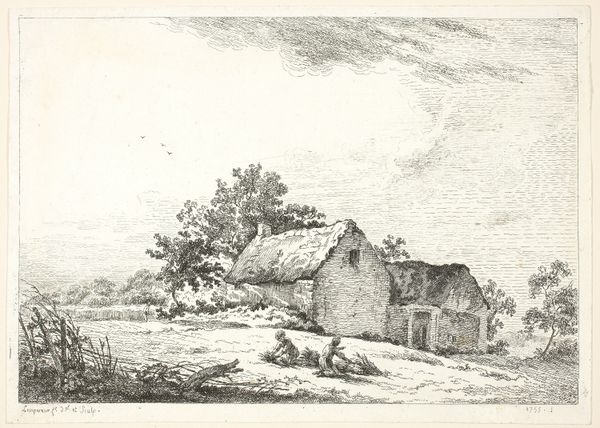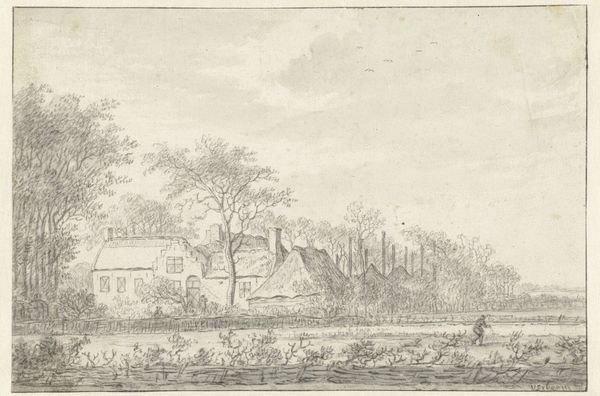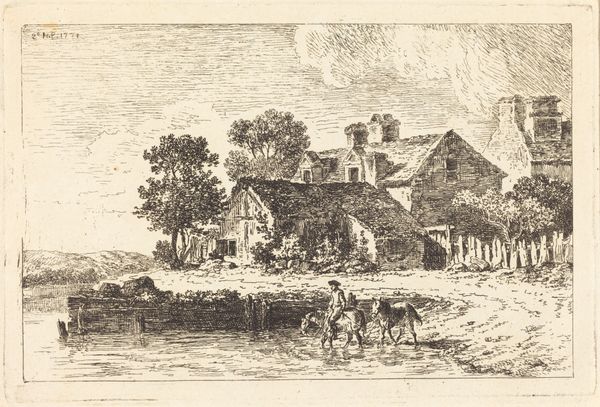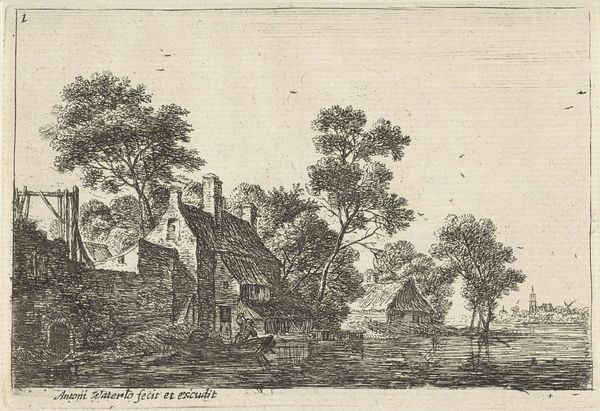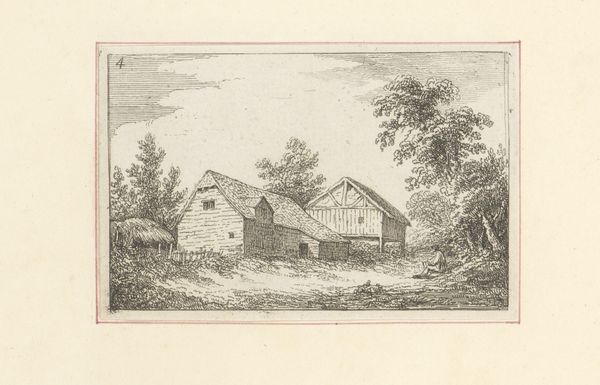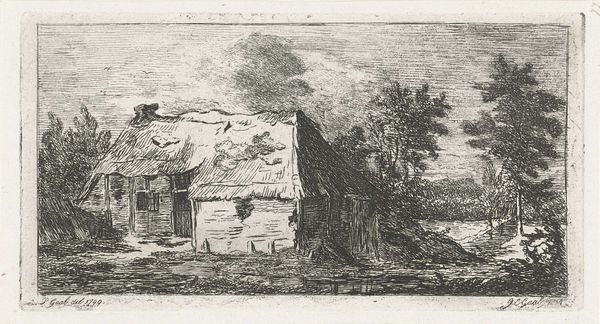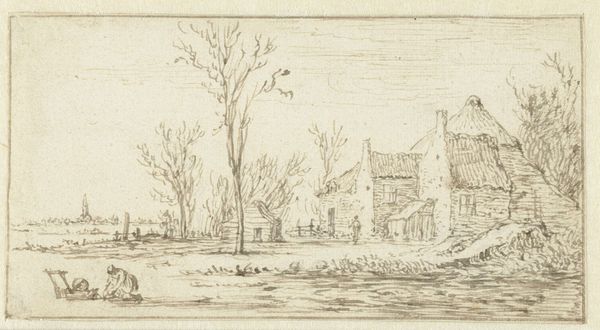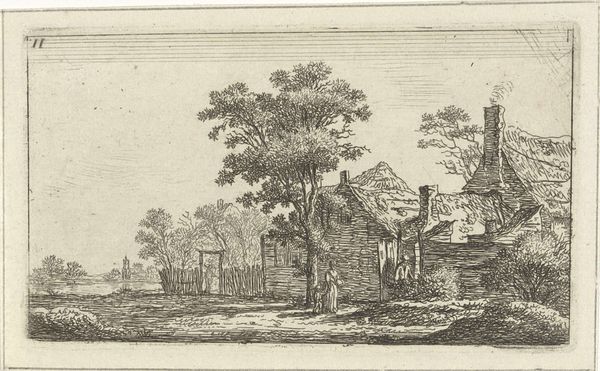
drawing, etching, paper, ink
#
landscape illustration sketch
#
drawing
#
mechanical pen drawing
#
pen illustration
#
pen sketch
#
etching
#
old engraving style
#
landscape
#
paper
#
personal sketchbook
#
ink
#
romanticism
#
pen-ink sketch
#
pen work
#
sketchbook drawing
#
genre-painting
#
storyboard and sketchbook work
Dimensions: height 66 mm, width 95 mm
Copyright: Rijks Museum: Open Domain
Curator: This ink and etching drawing, titled "Landschap met rijtuig," translating to "Landscape with Carriage," is attributed to Johannes van Cuylenburgh, likely created between 1803 and 1841. It presents a detailed rural scene. Editor: Immediately, I'm struck by how intimate it feels. The composition is almost dreamlike, a seemingly peaceful depiction, though there’s a somber tone. The fine linework creates a sense of quiet introspection. Curator: It's interesting you perceive that somberness. Cuylenburgh worked during a period of significant socio-political upheaval in Europe. Land was, and still is, tied to power. Representations of the land and who profits from it hold meaning, whether intentional or not. Editor: Yes, that carriage does add a dimension to the image—a marker of travel but also of social class. One wonders who owns that carriage, and perhaps, indirectly, this land? Is that dwelling in the background a simple farmhouse, or something more imposing? Curator: I think you're right to consider those questions. Consider how the Romantics engaged with representations of the natural world to speak to the sociopolitical anxieties of the time. This isn’t simply a picture postcard, there are hierarchies at play here. The etching captures light wonderfully for what it is - perhaps a representation of divine or moral illumination for a largely Christian population? Editor: Looking closer at the etched lines themselves, I can see a fragility. There's a sense of transience to it all, as if the entire scene could disappear with a gust of wind, much like socio-political status in those revolutionary times. It provokes contemplation about societal precarity, not simply a pretty depiction of a countryside scene. Curator: That's insightful. The social commentary could absolutely be embedded there within what initially looks like pastoral imagery. Editor: Overall, I am moved by this landscape. Curator: Indeed, the work's historical context really challenges initial perceptions and layers in considerable depth to it.
Comments
No comments
Be the first to comment and join the conversation on the ultimate creative platform.
